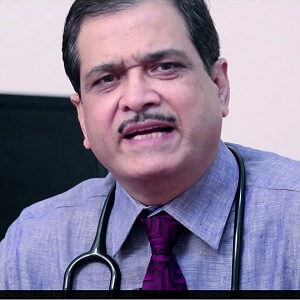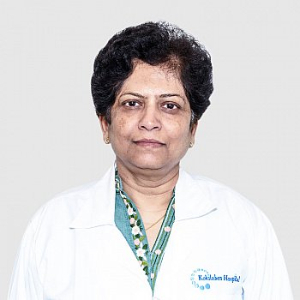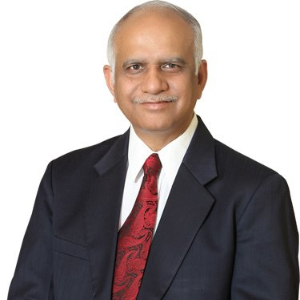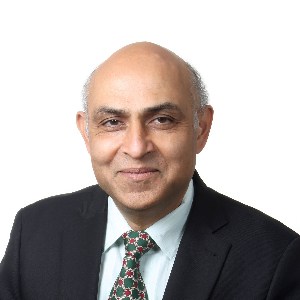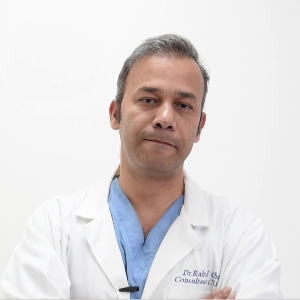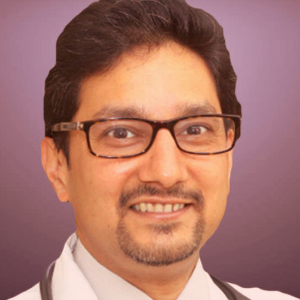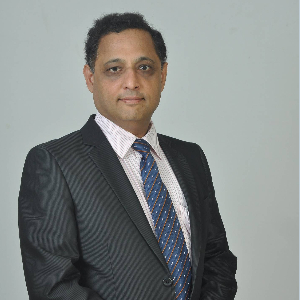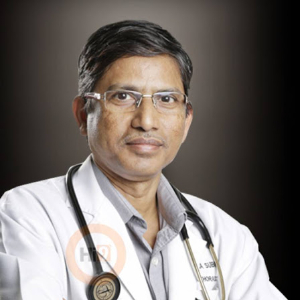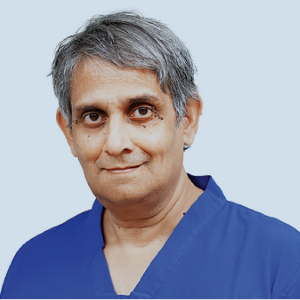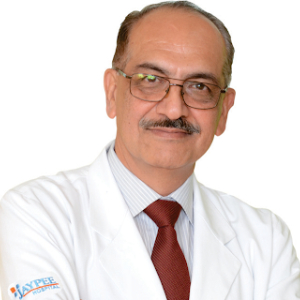Best ECMO Doctors in India
- Interventional Cardiologist, New Delhi, India
- Over 26 years experience
Profile Highlights:
- Dr. Rajeev Kumar Rajput is one of the best Cardiologists in India with nearly 23 years of experience. He is a clinical cardiologist engaged in diagnosing and treating cardiovascular diseases.
- Dr. Rajput is currently working as a senior consultant with Indraprastha Apollo Hospitals, New Delhi, and also offers patient care at the Heart & Gynae Clinic.
- Dr. Rajeev Kumar Rajput specializes in Angiography and Interventional Cardiology. The treatments provided involve Neonatal and Infant cardiac surgeries, Device Closure, and Valve replacement. He has expertise in Aortic Aneurysm Surgery, Vascular Surgery, Percutaneous Coronary Interventions, Endovascular Repair, Cardiac Catheterisation, Open Heart Surgery, and MV replacement.
- Dr. Rajput is credited with publishing several papers in noted medical journals.
- Pediatric Cardiologist, Mumbai, India
- Over 20 years’ experience
Profile Highlights:
- Dr. Snehal Kulkarni is a renowned pediatric cardiologist who specializes in the management and treatment of fetal cardiac diseases, non-invasive pediatric cardiology, and Adult Congenital heart diseases.
- She is an expert in Diagnostic and Interventional Cardiac Catheterization, Stent implantation, Cardiac Pathology, and Balloon dilatation.
- She has more than 2 decades of experience in pediatric cardiology and has acquired her training from prestigious institutions in USA.
- Cardiac Surgeon, New Delhi, India
- Over 36 years’ experience
Profile Highlights:
- Dr. S. K Sinha is one of the top-most reputable cardiac surgeons in India who has performed over 10000 heart surgeries, 2000 minimal access cardiac surgeries cases and has 36+ years of rich experience.
- As one of the best cardiac surgeons in India, Dr. Sinha has both performed and taken lead as the administrative and clinical mentor in several cases where his supervision and mentorship paired with his vast knowledge have helped future cardiac surgeons shape their careers.
- Senior Consultant - Cardiology, Dwarka, New Delhi, India
- Over 35 years’ experience
Profile Highlights:
- Dr. Monik Mehta is one of the best interventional cardiologists in India for the implantation of heart failure devices.
- His specialization also lies in performing complex Angioplasties and complex coronary interventions.
- Having received his training from Mahidol University, Bangkok, Dr. Monik Mehta has also worked with the United Nations as a cardiologist in Cambodia.
- Currently, he works as a Senior Consultant – Cardiology, in Manipal Hospitals, Dwarka, New Delhi.
- Senior Cardiothoracic and Heart Lung Transplant Surgeon, New Delhi, India
- Over 23 years’ experience
Profile Highlights:
- Dr. Rahul Chandola is a renowned cardiothoracic and vascular surgeon in India specializing in Adult CTVS along with heart and lung transplant surgeries.
- He is an expert heart and lung transplant surgeon and has performed over 100 heart transplant surgeries with successful results in both adult and pediatric patients.
- Currently, he works as a Senior Cardiothoracic and Heart Lung Transplant Surgeon in PSRI Hospital, New Delhi.
- Interventional Cardiologist, New Delhi, India
- Over 20 years’ experience
Profile Highlights:
- Dr. Vishal Rastogi is a leading Interventional Cardiologist in Delhi specializing in Heart Failure Management.
- Dr. Vishal Rastogi has over 20 years of experience in the field and holds the credit for the largest number of Impella Left Ventricular Assist Device (LVAD) implants in critically ill patients in India.
- He has performed a large number of Coronary and Peripheral Angiographies and diagnostic cardiac catheterizations in both adult and pediatric patients among several other interventional cardiac procedures.
- Cardio Thoracic & Vascular Surgeon, Mumbai, India
- Over 30 years’ experience
Profile Highlights:
- Dr. Anvay Mulay is a well-known cardiothoracic and vascular surgeon in Mumbai and one of the best heart transplant surgeons in India.
- He holds an extensive experience of close to 3 decades and has been associated with renowned cardiac hospitals in India, US, and UK.
- Dr. Mulay is one of the top surgeons for Adult cardiac procedures in India. He was the first to introduce LVAD in West and Central India when he performed the surgery on a 49-year-old patient.
- Cardiothoracic & Vascular Surgeon, Hyderabad, India
- Over 30 years’ experience
Profile Highlights:
- Dr. G Rama Subramanyam is a well-known cardiothoracic and vascular surgeon who specializes in open-heart surgery and has performed more than 5000 such procedures since 1997.
- He is also an expert in Minimally Invasive Coronary Artery Bypass Grafting and heart valve surgeries that includes over 200 Ischemic mitral valve repair surgeries and 100 myxomatous and Rheumatic mitral valve repair surgeries.
- Heart Lung Transplant Surgeon, Chennai, India
- Over 40 years’ experience
Profile Highlights:
- Dr. K R Balakrishnan is a highly coveted cardiac surgeon in India and is probably one of the best heart transplant surgeons in the country.
- He has performed the largest number of heart transplants in the country including 180+ heart transplants, 23 lung transplants, and 9 heart & lung transplant procedures. He performed the first permanent artificial heart transplant in India with HeartMate II LVAD.
- Dr. K R Balakrishnan has over 40 years of experience in the field and has the expertise to perform cardiac surgeries on patients of all ages. He has performed over 16000 cardiac surgeries for various types of heart diseases and disorders till date.
- Cardiac Surgeon, Noida, India
- Over 30 years’ experience
Profile Highlights:
- Dr. Manoj Luthra is a highly experienced and renowned Cardiac surgeon who has 30+ years of experience and performed the first heart transplantation surgery in the Indian Armed Forces.
- Till date, Dr. Manoj Luthra has performed more than 12,000 cardiac surgeries including 8000 heart bypass surgeries. He has also performed many heart transplants and aneurysm surgeries.
Best ECMO Hospitals in India
Lilavati Hospital & Research Centre, Mumbai
- City: Mumbai, India
Hospital Highlights:
- Lilavati Hospital & Research Centre is India’s premier multi-speciality tertiary care hospital and has been recognised as a global medical excellence centre.
- Lilavati Hospital & Research Centre has built an unrivalled level of trust with its patients over the years, thanks to a solid foundation that comprises cutting-edge facilities, the best medical competence, research, education, and charity endeavours.
- The hospital is quite proud of the fact that it now serves patients from all kinds of backgrounds, not just from the United States but from all around the world.
- The hospital has a total of 323 beds, one of the largest Intensive Care Units (ICUs), 12 Operation Theatres with modern amenities, over 300 consultants, and almost 1,800 personnel.
Venkateshwar Hospital, Dwarka, New Delhi
- City: New Delhi, India
Hospital Highlights:
- State-of-the-art technology and devoted healthcare professionals have been brought together under one roof at Venkateshwar Hospital to provide genuine medical care. The hospital’s professionals work together as a team to deliver the best possible treatment to their patients, using the most sophisticated equipment and information technology.
- Venkateshwar Hospital’s mission is to attain global excellence in healthcare by employing evidence-based, ethical clinical practices and cutting-edge technology by a team of highly skilled experts.
Marengo Asia Hospital, Faridabad
- City: Faridabad
Hospital Highlights:
In the sprawling city of Faridabad, where healthcare needs are diverse and ever-evolving, one institution has consistently stood out as a beacon of excellence in the field of medicine—Marengo Asia Hospital. Established with a vision to provide world-class healthcare services to the community it serves, Marengo Asia Hospital has emerged as a trusted name synonymous with quality, compassion, and innovation in healthcare.
Extracorporeal Membrane Oxygenation (ECMO)
ECMO or extracorporeal membrane oxygenation involves pumping the blood outside from your body into a heart-lung machine. The machine removes carbon dioxide and pumps back oxygen-filled blood into your body tissues. The flow of the blood is from the right side of your heart to the membrane oxygenator of the heart-lung machine that rewards and sends it back to your body. The procedure allows the organs to rest and heal while the blood bypasses your heart and your lungs. Usually used in infants with critical disorders of the heart and the lungs, you may also find its use for some other infections.
The method involves the use of a membrane oxygenator (acting as an artificial lung) that oxygenates the blood. It supplies oxygen to the blood and returns it to your body by combining with a warmer and a filter. Used for providing oxygenation while your doctor treats the disorder, it also benefits adults and older children.
Types and parts of ECMO
ECMO is of two types:
- Veno-venous ECMO (VV ECMO)- It takes blood from the veins and returns the blood to the vein. This type of ECMO finds its application in supporting lung function.
- Veno-arterial ECMO (VA ECMO)- It takes up the blood from one of the veins and returns the blood back to the artery. It supports the lungs as well as your heart. Being more invasive than veno-venous ECMO, there might be a need to close off the carotid artery (carotid artery is the main artery that extends from the heart to the brain).
Parts of ECMO include:
- Cannulae- They are large tubes (catheters) that your doctor will insert into your blood vessels for taking up and returning the blood back to the body.
- Membrane oxygenator- Used for oxygenating the blood, it is an artificial lung.
- Warmer and filter- Its purpose is to warm and filter your blood before the cannulae or catheters return the blood back to your body.
The cannulae take up blood with less oxygen from your body and send it to the oxygenator during ECMO. The membrane oxygenator will then pump oxygen into your blood and send this oxygenated blood through the warmer & filter to finally return the blood to your body.
Reasons for ECMO
ECMO is for the people suffering from critically ill conditions of the heart and the lungs or recovering from a heart transplant and when other life support procedures didn’t work. If you are suffering from serious but reversible lung or heart disorders, then your doctor will place you on ECMO. For the newborns, it is beneficial as it allows their heart and lungs to develop. There is a substantial increase in the survival rates with ECMO. It helps your body by providing oxygen to your body tissues. You may need to go for ECMO during conditions enlisted here.
For infants:
- ARDS (Acute Respiratory Distress Syndrome)
- Congenital diaphragmatic hernia (if there is a defect in the diaphragm)
- Pulmonary hypertension (high blood pressure present in the lungs)
- Respiratory failure
- Sepsis (an infection that can be life-threatening)
- Pneumonia
For older children:
- Severe pneumonia
- Cardiac surgery
- Toxic materials present in the lungs because of aspiration
- Infections
- Trauma
- Asthma
- Congenital heart defects
For adults:
- Decompensated cardiomyopathy (heart muscle disease)
- Severe hypothermia (low body temperature)
- Acute myocardial infection (heart attack)
- Carcinogenic shock (shock caused when the heart is unable to pump enough blood)
- Myocarditis (presence of inflammation in the muscles of the heart)
- Post-transplant complications
- Pulmonary embolism (blockage in the pulmonary artery of the lungs)
- Hantavirus pulmonary syndrome
- Influenza (flu)
Preparation for ECMO
Your doctor will first check you before placing you on ECMO. He or she will perform a cranial ultrasound of your brain to ensure that there’s no bleeding. It will also determine if your heart is working. You might need to undergo a chest x-ray daily while on ECMO. Your doctor will prepare the equipment after determining if you need ECMO. A trained team will perform your ECMO. The team will include respiratory therapists, ICU registered nurses, consultants & support personnel, rehab specialists, perfusionists who specialize in performing ECMO and a 24/7 transport team.
What to expect?
During ECMO
During ECMO, your doctor will first discuss all the details of the procedure with you and/or your family. Your doctor will place the cannulae in your chest, neck or groin region depending on your age after giving you general anesthesia (sleep medicine). You will be sleeping due to the sedation while being on ECMO. ECMO will perform the function of the lungs or heart. Your doctor will monitor you closely during ECMO with the help of daily X-rays. Apart from this, the doctor will also be monitoring your:
- Blood pressure
- Heart rate
- Oxygen levels
- Respiratory rate
With the help of a ventilator and a breathing tube, your lungs will continue to work and remove the secretions from your body. You will continuously receive all the medications through intravenous catheters including heparin. Heparin prevents the clotting of blood while it travels during ECMO as it is a blood thinner. Your doctor will place you on ECMO for a minimum of three days to even a month, depending on your condition. However, the higher you are on ECMO, the higher is the risk associated with ECMO.
After ECMO
After noticing the improvements in your condition, your doctor will slowly reduce the amount of oxygenated blood that you receive through the ECMO and then wean you off from ECMO. Once you get off from this, your doctor will place you on a ventilator for a certain period of time. However, you will still require a regular follow-up for monitoring the underlying condition.
Results of ECMO
Risks of ECMO
The most common risks associated with ECMO are:
- Coagulopathy (blood clotting disorder)
- Seizures
- Bleeding
- Infection
- Stroke (damage to the brain because of the bursting of blood vessels or blood loss)
- Thromboembolism (blood clot)
- Limb ischemia (loss of blood in the limbs)

